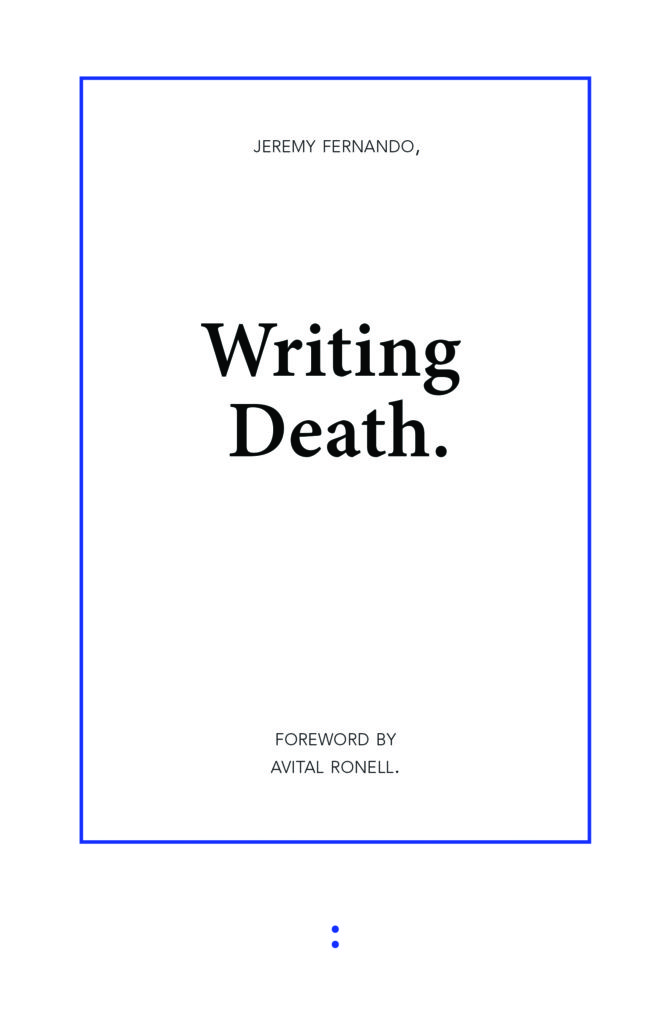“Jeremy Fernando’s Writing Death is a sensitive attempt at exploring the depths and heights to which the processes of mourning can take us. Death, as an absence, renders all gestures (for what is mourning but a gesture with many faces) surrounding it at once as a possibility and an impossibility. Fernando poses questions that often elude the mourner and the mourned – the same, and different – by raising the specter of subject and object; by compelling the examination of what it actually means to mourn; and most crucially, by considering the very status of possibility itself that the act of mourning foregrounds.”
~ Lim Lee Ching
“Ask not for whom the bell tolls… Eulogy: one of the many English words combining legein (to gather together) and logos (the word, the law). With eulogy though the speech-act itself is all important (eu-) and its impossibility evident in a written work. The site of the gathering together of words, of scattered sounds, disappears in the act of writing, itself scatter – all too forcefully underlining the cause, the event of dispersion that creates the need for gathering together. Jeremy Fernando’s eulogy, this particular eulogy, is called Writing Death, and it reminds us that eulogy in its impossibility may well be the primary genre of writing. Writing and death have always gone together, hence Plato’s suspicions of chirographic technologies. The author is absent, as is the subject. The text brooks no questions and gives no answers. Fernando’s gathering of scatterings in the form of mini-meditations unfolds the weaving of textus that makes writing possible and makes death comprehensible in all of its paradoxical mystery and awe-ful presence. His is a book of catalysts: use them with care.”
~ Ryan Bishop, Professor of Global Arts and Politics, the Winchester School of Art, the University of Southampton
“Somewhere between pages of prancing around with the dead, affect-dumping past textual therapies, and interspersing half-formed confessions for affects of the past, he read Writing Death to me. I finished the book in one sitting, re-lived grief, and imagined a distance built into writing about reading about writing about grief.”
~ Crystal Abidin

